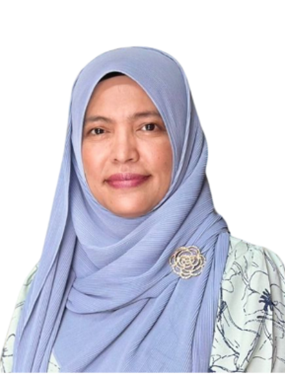By: Assoc. Prof. Dr. Zuwati Hasim
The initiative to promote school-based and classroom-based assessments has started way back in 2011. However, until today, there is no study officially carried out and reported by the Ministry of Education on the effectiveness of its implementation. Also, the extent trainings were given to all teachers are still under a lot of questions whereby we generally could see the impacts on the stakeholders’ limited understandings and teachers assessment practices that has caused many parents to demand for a comeback of the high-stakes examination practice and the urge of ‘Proficiency/ Mastery Level’ widely identified as ‘Tahap Penguasaan (TP)’ to be translated into percentages.

The limited understandings among practitioners should have been tackled through providing clear guidelines by the policy-makers. Besides, on-going training and monitoring from the relevant departments of education are necessary. In the first place, a shift of mindset, knowledge improvement on the practice of formative assessment that is ‘assessment for learning’, and willingness to change in practice are indeed key factors influencing the success of school-based and classroom-based assessment.
An international project on formative assessment called Teacher-Led Learning Circles For Formative Assessment (T3LFA), involving groups of teachers and their students, from 7 countries – Malaysia, Brazil, South Korea, Uruguay, Côte d’Ivoire, Ghana, Switzerland; has recorded several promising practices of ‘assessment for learning’ even in large number of classes. Hence, the number of students in a class should not be a hindrance or an excuse for not being able to implement classroom-based assessment.
No doubt, managing many students in the classroom can present challenges to some, but it should not hinder pedagogical and assessment practice. Formative assessment is a critical part of the learning process, allowing teachers to gauge students’ understanding, provide timely feedback, and adjust teaching strategies accordingly. Here are several ways in managing large classes to allow effective formative assessment practice:
• Designing tasks that involve group assessments and collaborative projects that could encourage students to assess their own and peer learning. This kind of task will help students in learning about distribution of work and in making plans for achieving the learning and assessment objectives. Besides by getting students to work collaboratively, it promotes sharing of ideas and for teachers to easily manage the assessment process.
• Leveraging technology for assessment administration, management, and reporting will allow teachers to utilise readily available platform or tools for assessing their students. Besides, technological tools may help teachers in recording, analyzing, and reporting results or outcomes of classroom-based tasks or assessment. This of course demands for teachers to be digital literate; hence Ministry of Education should invest in the in-service teacher trainings to upskill the teachers’ content knowledge and related skills.
• Breaking down tasks or assessments into manageable systems by assessing small units at a time or every end of topics instead of every end of periods. This will also allow teachers to give timely feedback to students. The key construct of classroom-based or formative assessment is ‘constructive feedback’, not for grading but more of finding out how far students have achieved the learning objectives and how could the lesson be improved to help students achieve and understand the lesson better.
• Using exit tickets to help teachers quickly gauge students’ comprehension and identify areas of teaching and learning for revision, to be implemented in the following lesson or as supplementary practices. This exit ticket technique is applied at the end of every lesson or unit of learning.
• Providing timely, targeted, and meaningful feedback is necessary in implementing classroom-based assessment or formative assessment. In this case, teachers could use either verbal, visual or written feedback. Feedback does not have to be lengthy or extensive as long as it has a feed forward element to help students to improve their learning weakness. Feedback should be specific and actionable, focusing on areas for improvement rather than just highlighting mistakes. This helps students understand how to progress and improve further.
• Developing clear and concise rubrics also can help teachers be more organized and objective in evaluating their students. Having a clear guideline on how and what to assess can help teachers in being more focus and at the same time avoid bias and reduce subjectivity in assessment.
• Having diverse assessment methods to address one-size does not fit all. Methods can vary (such as quizzes, group- or pair- audio, video, poster presentation, project work, etc.) to help account for different learning styles and reduces the impact of bias.
All in all, managing a large number of students in the classroom while practicing formative assessment and providing feedback requires a combination of technology, group work, and efficient assessment strategies. By employing these methods, teachers can create an environment conducive to learning and student growth, regardless of class size. At the same time, avoiding bias and subjectivity in assessment is important for ensuring fairness and equity in evaluating students’ performance. When teachers are provided with the tools and training to conduct assessments objectively, it enhances the validity and reliability of the assessment process hence developing trust among stakeholders.
Thus, to ensure positive outcomes of classroom-base and formative assessment practice, willingness to change of practice among teachers especially and providing ample supports by the Ministry of Education to promote professionalism in the teaching career is crucial.
…
The author is the Deputy Dean of Research at the Faculty of Education, Universiti Malaya, and may be reached at zuwati_hasim@um.edu.my







Leave a comment